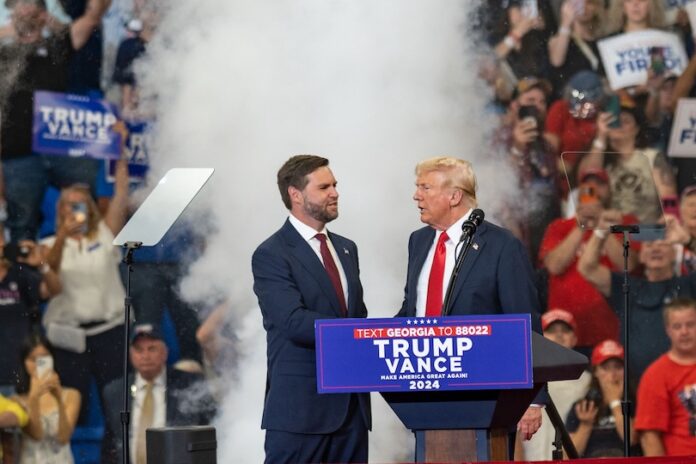A potential Trump-Vance victory in the November 2024 US elections would represent a significant shift in global politics for Europe. As conflicts escalate in the Middle East and power dynamics change in the Indo-Pacific region, Europe must acknowledge that its days as a global power hub are coming to an end. In this changing world order, Europe needs to adjust to evolving U.S. foreign policy priorities. The differences in foreign policy and alliances within the U.S. Republican Party are stark, making it crucial for European leaders to understand the rationales of three key factions: traditional internationalists, hawkish activist hardliners, and neo-isolationists.
While these factions share the goal of maintaining America’s influence globally, their approaches vary significantly, impacting European interests. The key differences lie in their foreign policy objectives and strategies to achieve them.
European policymakers must first grasp the perspective of Republican internationalists, who are generally pro-interventionist and supportive of European interests. However, with the influence of the Trump-Vance ticket, there is a growing emphasis on NATO burden-sharing with Europe. For example, prominent Republican internationalist Nikki Haley has called for European allies to contribute their fair share to NATO, recognizing the need for more equitable partnerships.
Republican internationalists prioritize China as the primary threat, followed by Russia and Iran as regional concerns. They emphasize the strength of collective action and stress the importance of European allies in addressing common challenges. European leaders should underscore the value of the transatlantic alliance to maintain strong ties with this faction in the future.
On the other hand, Republican activist hardliners, led by figures like Mike Pence, adopt a more hawkish approach to foreign affairs, focusing on countering threats from China and rogue states like North Korea and Iran. Their preference for unilateral action over multilateral dialogue may pose challenges for Europe, requiring a firmer stance and greater cooperation to align with their objectives.
Lastly, the neo-isolationists within the Republican Party, such as J.D. Vance and Matt Gaetz, advocate for a more isolationist foreign policy, prioritizing unilateral decision-making and questioning traditional alliances. Europe must be prepared to engage with this faction pragmatically while upholding shared values and addressing geopolitical challenges independently.
Overall, Europe faces economic and security challenges under any of these Republican factions, including potential shifts in trade policies and defense commitments. European leaders must anticipate and adapt to these changes, fostering stronger transatlantic partnerships while navigating the complex dynamics of U.S. foreign policy.




